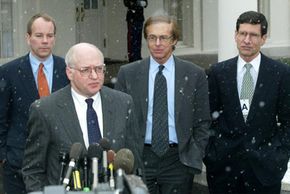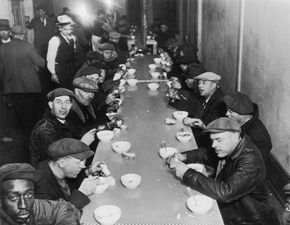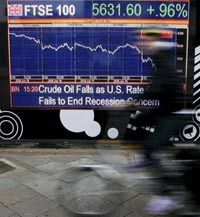There are people whose entire careers are spent tracking and detecting the presence ofrecessionsand depressions. These people look at a whole array of economic indicators -- from the Bureau of Labor Statistics' employment reports to the National Association of Home Builders' number ofnew homesbeing built. While there are lots of organizations dedicated to sniffing out recession, theNational Bureau of Economic Research(NBER) is the group whose opinion on the matter is most widely relied upon. In other words, if the NBER says we're in a recession or a depression, we're probably in one.
Although the word can strikefearin the hearts of white collar and blue collar workers alike, recession in and of itself isn't a bad thing. Still, it can have massive and far-reaching consequences.Unemploymentgoes up as businesses find their customers less willing to part with money. When there's less money to go around, consumers spend less. As profitability declines, so, too does the value of companies'stocks. Recessions are likeouroboros-- thesnakesthat eat their own tails, forming a never-ending circle.
Advertisement
But recessions do end. In fact, some economists believe they're a natural part of an economic cycle that is characterized by peaks and troughs. But what about depressions? If recessions are economically painful, then depressions are like having your financial teeth yanked without Novocain. What exactly is the difference between a recession and a depression? That depends on your point of view. Recessions and depressions are definitely related -- to understand one you have to understand the other. Read about recessions on the next page.






